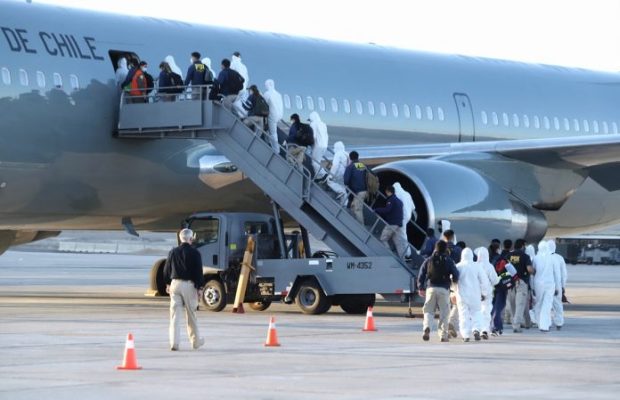RIO DE JANEIRO, BRAZIL – Under the slogan of “putting the house in order”, the Chilean government enacted this Sunday the new Migration Law that took 8 years to be approved and that has received a barrage of criticism from the opposition and pro-migrant organizations, for imposing greater border “rigidity” and speeding up deportations.

“The objective is to put order in our house through an orderly, safe, and regular policy that allows legal immigration and combats illegal immigration,” said the president, conservative Sebastián Piñera.
The new law, introduced in 2013 in Parliament by the current president during his first term (2010-2014), seeks to facilitate deportations and requires obtaining a visa in the country of origin to prevent foreigners from entering as tourists and changing their migratory status to seek work.
A CONTROVERSIAL LAW
The law was approved last December in Parliament after a lengthy discussion. Still, in January, a group of left-wing (opposition) deputies filed an injunction before the Constitutional Court, considering “unconstitutional” several articles which the Executive considered “key”.
The highest court objected to six provisions, among them the one prohibiting the deprivation of liberty for 72 hours of a person who has obtained an expulsion order and the article regulating the assisted return of children and adolescents.
Initially, the norm established that “unaccompanied” minors could “be subject to a procedure of assisted return to the country they are nationals,” but the court rejected this provision.
While for the government, this new regulation is the way to face the growing migratory phenomenon, the opposition considers that the hardening of the borders will increase migrants crossing through unauthorized crossings.
“This law closes off possibilities for migrant workers and goes against the progress of bilateral agreements in the region,” said Rodolfo Noriega, secretary-general of the National Coordinating Committee of Immigrants in Chile.
The new regulation replaces the current one, one of the oldest migration laws in Latin America, designed in 1975 during the dictatorship of Augusto Pinochet (1973-1990), when the military regime sought to restrict the entry of migrants.
MIGRATION BOOM
The enactment of the law comes at a time of a migratory boom, especially on the northern border between Chile and Bolivia. More than a thousand immigrants entered illegally during February and March, causing the collapse of several small border towns.
The shortages, clashes between authorities and migrant groups, and the Covid-19 health crisis created a climate of maximum tension in the region, which worsened with five foreigners’ death.
The government authorized the Armed Forces’ deployment to combat the smuggling of migrants at this point of the border, where “coyotes” who charge people to guide them from one country to another are common.
Despite the Covid-19 pandemic and the social crisis that lasted for more than a year, Chile continues to be one of the most attractive countries for migrants in Latin America due to its political and economic stability.
According to the Department of Foreigners and Migration, there are 1.4 million migrants in Chile, equivalent to more than 7% of the population. Venezuelans are the most numerous, followed by Peruvians, Haitians, and Colombians.
Source: efe

